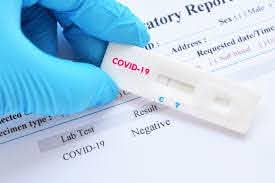Blogs
What are Medical Device Recalls?
A recall means that the FDA and/or a manufacturer is aware of a problem with a device that could affect patient safety and health. Most manufacturers voluntarily recall medical devices that are found to have created health risks, but the FDA has the right under law to issue the recall if the company does not do so, or refuses to do so, which is rare. The recall may be related to a correction on a device or total removal of the device from the market.
What is the difference between NDA & ANDA?
The New Drug Application (NDA) is the vehicle through which drug sponsors formally propose that the FDA approve a new pharmaceutical for sale and marketing in the U.S. In other words, when the sponsor of a new drug believes that enough evidence on the drug’s safety and effectiveness has been obtained to meet the FDA’s requirements for marketing approval
Different sterilization methods used in the laboratory?
Sterlization plays a very vital and crucial role in Medical Industry. Most commonly used methods are the Heat Method, Filteration , Radiation Sterilization and Chemical Method.
What is the Difference between GLP and GMP Testing Regulations?
GLP and GMP are at times confused as the same as it pertains to Laboratory testing. It is understandable that both cover Lab Testing still are different. Knowing the difference becomes very important here.
Can we use expired medical gloves? Do they offer the protection needed?
Medical gloves were designed to serve as protective barriers and may still offer some protection even when they are used beyond the manufacturer’s designated shelf life or expiration date.
What Is Emergency Use Authorization (EUA)?
EUA is a tool used by FDA to authorize the temporary use of products that fulfill urgent medical needs during public health emergencies. These products are authorized for use only in specific circumstances and expire once those conditions end.
What is an ambulatory surgical facility (ASF)?
An ambulatory surgical facility is a distinct entity whose primary purpose is to furnish same day outpatient surgical services to patients. A facility that offers LASIK as one of its ophthalmic surgical procedures may also provide non-ophthalmic surgical services. Consider all surgical services provided by a facility when determining whether a facility meets the MDR definition of an ambulatory surgical facility and is therefore subject to the user facility obligations under MDR.
What is the Solidarity Trial?
The Solidarity Trial is an international clinical trial to help find an effective treatment for COVID-19, launched by WHO and partners. It is hoped that one or more of the treatments under trial will result in improving clinical outcomes in COVID-19 patients and save lives. Other trials are on-going around the world in addition to the Solidarity Trial.
What is the difference between 510K and PMA?
The purpose of a 510k submission is to provide the FDA with documented evidence which proves that your device is equivalent to a preceding device that has already been approved for marketing. The FDA processes 510k submissions in 30-90 days and if your application is accepted, your submission will be posted to the FDA 510(k) database. A Premarket Approval (PMA) is more in-depth than a 510k - it is used to prove that a new device is safe and effective for the end user and typically requires clinical trials with human participants along with laboratory testing. Under Section 515 of the act, all devices placed into Class III are subject to premarket approval requirements.
I want to find out if I had COVID-19 in the past, what test should I take?
Antibody tests can tell us whether someone has had an infection in the past, even if they have not had symptoms. Also known as serological tests and usually done on a blood sample, these tests detect antibodies produced in response to an infection. In most people, antibodies start to develop after days to weeks and can indicate if a person has had recent (IgM type antibodies) or past infection (IgG type). Antibody tests cannot be used to diagnose COVID-19 in the early stages of infection or disease. They also cannot alone confirm immunity or duration of protection from reinfection.
FDA Form 483 And Warning Letters: What's the Difference?
A lot of pharmaceutical professionals have confusion between FDA Form 483 and Warning Letters. Both of these are issued by Food and Drug Administration (FDA) after a regulatory inspection of the manufacturing facility.
What should I do if I want to take part in clinical trial?
If you are patient or family member and you find a trial that is of interest we suggest that you print out the information and discuss it with your health care provider. They should be able to advise you on the appropriate course of action.
